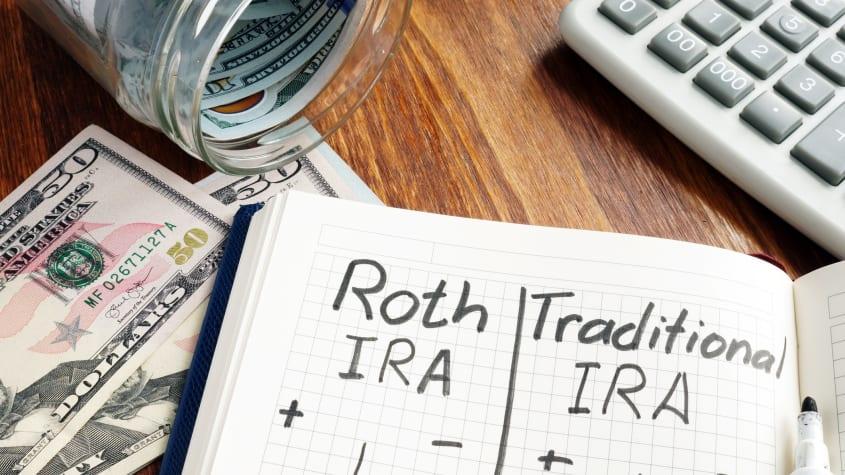Although COVID-19 related restrictions are beginning to ease, many people continue to help slow the spread by staying home and self-isolating. There are still unknowns related to the pandemic and how it will play out, undoubtedly keeping us all on edge. Over the past few months, we’ve been forced to face fears of falling ill, losing a job, spending time alone, etc. With these anxieties weighing on your mind, it may feel as though there’s a sudden need to get your affairs in order, just in case.
It never hurts to be prepared in the event that, for instance, you may need to be hospitalized for coronavirus or any other sickness. Thinking about falling ill or not being able to make decisions for yourself can be frightening, but having an estate plan in place can help ease your concerns.
Many people are taking this time at home to update their estate plans, and if you don’t have one in place, there’s no better time to put it together.
Estate Plan Documents That Should Be Reviewed & Updated If Neccessary
Individuals over the age of 18 should have some level of estate planning in place. You may be surprised to learn that wills and trusts aren’t the only documents to prioritize. A strong estate plan will include several important documents, such as a living trust, financial powers of attorney, health care powers of attorney and more.1
In light of the current pandemic, two of the most important documents to have up-to-date and on-hand are your medical and financial powers of attorney. For instance, if you’re quarantined in your home, admitted to the hospital or become incapacitated, you’ll need someone to handle your finances or make medical decisions on your behalf. With those in place, it’s a good idea to continue organizing a comprehensive estate plan that includes the following documents.
1. Power of Attorney and Health Care Proxy
A financial power of attorney grants authority to carry on a person’s financial affairs and protect their property by acting on their behalf. This includes the ability to write checks, pay bills, make deposits, purchase or sell assets or sign any tax returns.1
Similarly, a health care power of attorney grants the authority to make health care decisions on your behalf should you become incompetent or incapacitated. If you are over the age of 18 and do not have a health care power of attorney in place, your family members will need to request that the court appoint a guardian to take on these responsibilities.1
Ensuring that you have named trustworthy and reliable individuals as your powers of attorney is key as you update your estate plan. If your current documents are outdated, implementing new ones should be on the top of your list.
2. Your Will
A last will and testament is a legal document that allows you to direct distributions of your property at the time of your death. A will also allows you to appoint an executor who oversees the distribution of your assets.2 This person will attend to your affairs after you pass, probate your will if necessary and file income and estate tax returns on your behalf. If you have children who are minors, you should also name a guardian for them in the will.
Everyone has assets that must transfer after a person’s death, and without a will, there is no direction as to how and to whom those assets will pass. Distribution of your assets will be handled by the state and the court will decide on the best person to oversee the administration. This is similar to an appointed guardian in that if you don’t appoint one, a court will decide on the best person to fulfill this role.2
3. Living Trust
In general, your trust benefits you while you are alive and may also be beneficial to others, such as your spouse or children. Identifying who will receive assets upon your death may be a detail that needs updating based on your lifestyle and changes that have taken place. Additionally, you’ll want to outline whether your beneficiaries receive your assets outright or perhaps you’ll want to provide them with an income stream instead. If your beneficiaries are young, you may want to consider holding assets for them in a trust until they are old and responsible enough to handle finances themselves.
Appointing a trustee will identify who will step in to manage your affairs without the involvement of the court, avoiding extra time and money associated with probate.3 A trust also affords you privacy regarding the details of your estate since it eliminates the need for probate, which is a public process.
4. Beneficiaries
Another important update you should make to your estate plan is to review beneficiary designations on your life insurance policies, retirement accounts, etc.2 Keep in mind that if you have a joint asset such as a bank account, that will pass to the surviving joint owner. Be sure to name someone you trust to act in your best interest should the time come for them to be responsible for your assets.
Due to stay-at-home orders and social distancing practices, it may be more difficult to meet with your attorney or notary in-person to prepare or update your documents. There are template websites online that allow you to create documents from scratch, and some states have even suspended various statutes to let people appear before a notary public via videoconference.4 While some documents can be finalized virtually, wills need to be signed in front of witnesses, which means this step to finalizing your documents may need to be done in person.
While you have the time, you should start reviewing your estate plan and making any adjustments needed. Your financial planner can guide you through this process and advise you on the necessary documents which will benefit your family. Making these necessary and important changes now will likely benefit you and your family in the future.
- https://www.americanbar.org/groups/real_property_trust_estate/resources/estate_planning/
- https://www.americanbar.org/groups/real_property_trust_estate/resources/estate_planning/an_introduction_to_wills/
- https://www.consumerreports.org/cro/2013/11/how-to-create-a-bulletproof-estate-plan/index.htm
- https://www.americanbar.org/groups/law_aging/resources/coronavirus-update-and-the-elder-law-community/notarization-in-the-age-of-covid-19–the-status-of-states/




